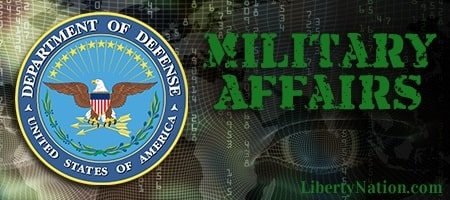Here’s how the US becomes hostage to the Red Dragon.
What will the United States do with China as a nuclear peer? The People’s Republic of China (PRC) is rapidly achieving that status with a nuclear warhead development and building program moving faster than anticipated. At the same time, a recently released report on US readiness indicates that America’s nuclear posture is inadequate. Sheer numbers of warheads is not necessarily an accurate measure of relative atomic weapons power, but with nuclear weapons, it’s a decent rough order of magnitude.
China Has a Growing Nuclear Weapons Inventory
Bring to the nexus the enormous destructive power of nuclear weapons caches growing in China, the latest report on US strategic preparation not being up to the task, and the country’s national security is in crisis. America has known since shortly after the nuclear age began that it is a competition to the death with the Soviet Union and now Russia. However, US strategists and planners considered other nuclear foes far off in the future. Well, that future is now. A congressional commission’s recently published “America’s Strategic Posture” provided a dire prediction:
“The vision of a world without nuclear weapons, aspirational even in 2009, is more improbable now than ever. The new global environment is fundamentally different than anything experienced in the past, even in the darkest days of the Cold War. Today the United States is on the cusp of having not one, but two nuclear peer adversaries, each with ambitions to change the international status quo, by force, if necessary: a situation which the United States did not anticipate and for which it is not prepared.”
Not prepared for what? China’s rapidly building nuclear capability, with no slowing in sight. The PRC is in rush mode because Beijing is hellbent on becoming the most powerfully armed nation in the Indo-Pacific. President Xi Jinping has declared China will be the dominant economic and military power by 2049 and boasts his near-fanatical belief that Taiwan belongs to China and the PRC. The Chinese Communist Party (CCP) knows that if the People’s Liberation Army, Navy, and Air Force were to attempt an invasion of Taiwan now, it would be a slugfest, with the United States and its Indo-Pacific allies having a formidable conventional weapons military force. Losing such a conflict would end the CCP’s Belt and Road Initiative and push forward its hegemonic design on the world for 20 more years.
China Wants to Intimidate the West
Xi wants a strong nuclear capability in hopes that he can invade and subjugate Taiwan and warn the West not to try to stop him or he’ll go nuclear. At the moment, he can’t make the threat credible. However, the latest Pentagon report, “Military and Security Developments Involving the People’s Republic of China 2023,” covering events and activities in the PRC through the end of December 2022, made an ominous prediction:
“In 2022, Beijing continued its rapid nuclear expansion, and DoD [Department of Defense] estimates that the PRC possessed more than 500 operational nuclear warheads as of May 2023 — on track to exceed previous projections. DoD estimates that the PRC will probably have over 1,000 operational nuclear warheads by 2030, much of which will be deployed at higher readiness levels and will continue growing its force to 2035.”
The number of nuclear warheads China had in 2020 was estimated at around 250. In three years, the PRC stockpile of atomic weapons has doubled. Last year, Liberty Nation warned about the rapid growth in China’s inventory of nuclear warheads: “China’s objective is to increase its number of nuclear warheads from the current estimate of 400 in 2021 to 1,500 by 2035 – a three-fold increase.”
 In isolation, the reports — the Defense Department’s China’s military and security developments and the congressionally mandated US strategic posture study — are very troubling. However, when combined, we see a rapid buildup of Chinese nuclear capability that the United States under the Biden administration likely cannot counter. It is critical that the United States pursues speedy nuclear modernization. Programs such as newer ground-based intercontinental ballistic missiles, air and sea elements of the nuclear triad fitted with more reliable warheads and in numbers to address Russia and China acting alone or in concert are crucial.
In isolation, the reports — the Defense Department’s China’s military and security developments and the congressionally mandated US strategic posture study — are very troubling. However, when combined, we see a rapid buildup of Chinese nuclear capability that the United States under the Biden administration likely cannot counter. It is critical that the United States pursues speedy nuclear modernization. Programs such as newer ground-based intercontinental ballistic missiles, air and sea elements of the nuclear triad fitted with more reliable warheads and in numbers to address Russia and China acting alone or in concert are crucial.
The United States is in a cold war with China more dangerous than the US-USSR struggle ever was. Beijing is relentlessly pursuing power with the resources a Cold War Moscow never had. The United States must modernize and grow its nuclear inventory and adjust its strategic posture — or be held hostage to Beijing’s nuclear threat.

